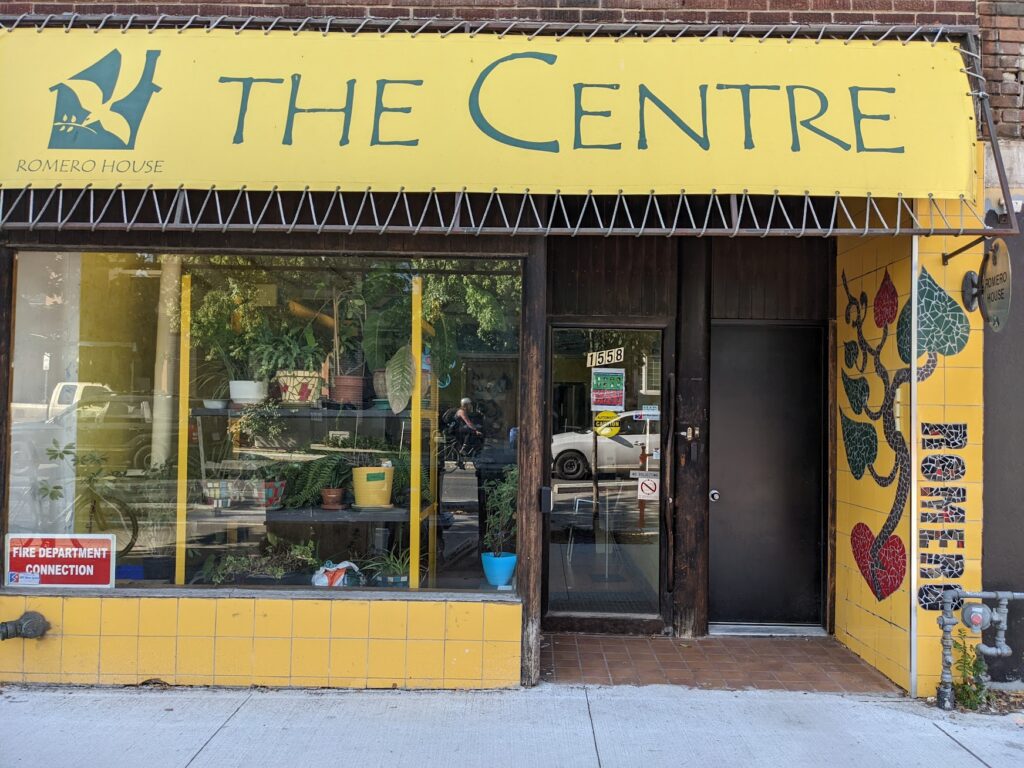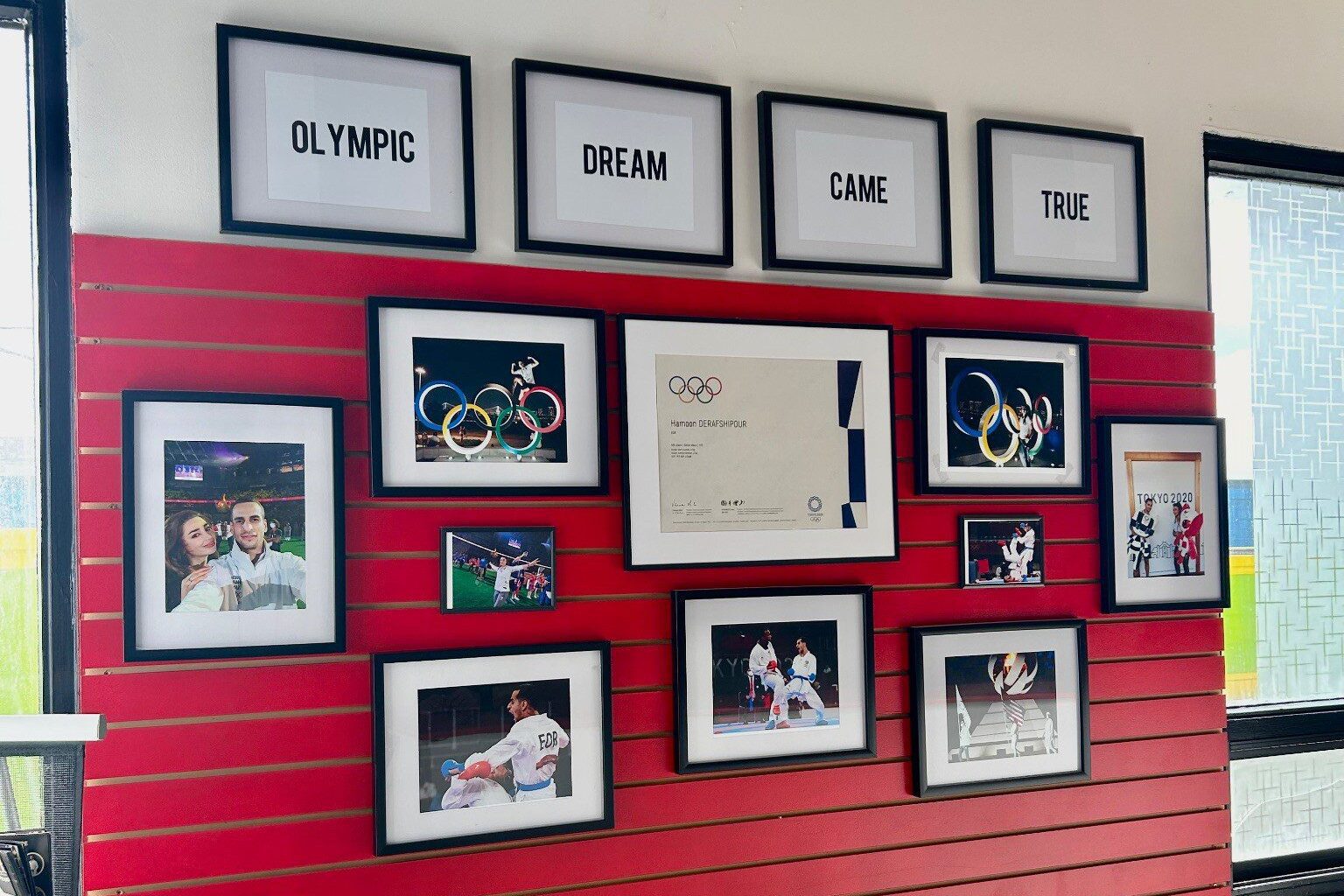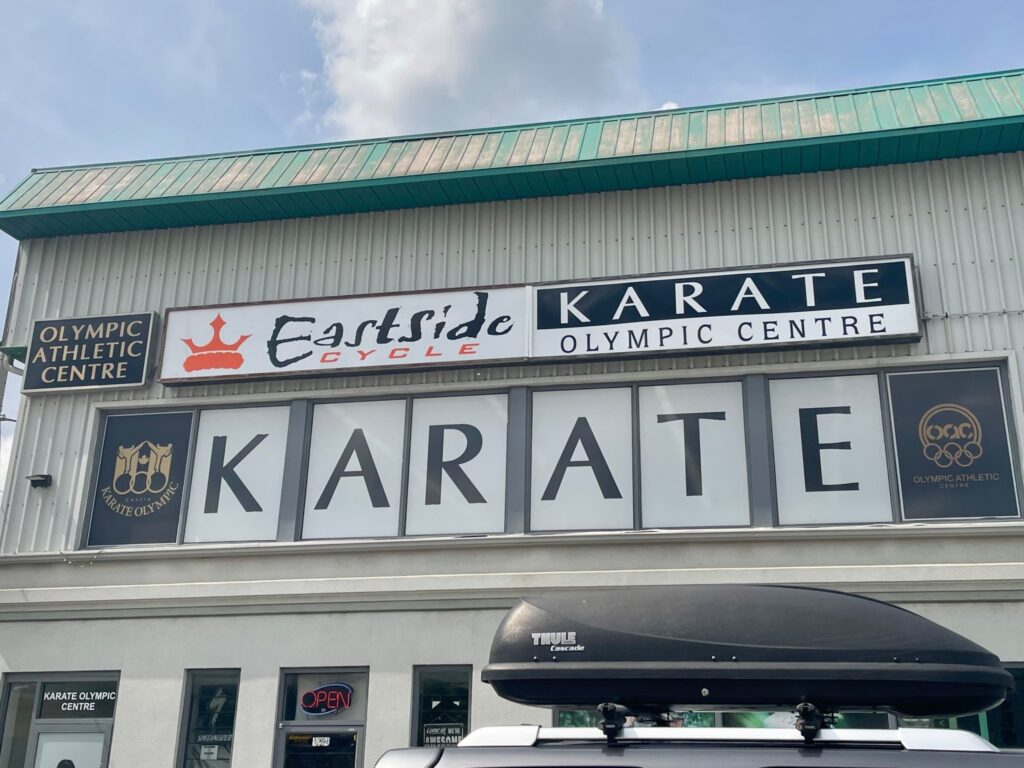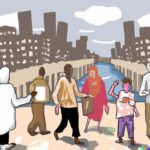Theme: Romero House, sanctuary cities, Toronto, refugees
Authors: Kara Nguyen, Darina Muñoz, Jasper Derhak

As a designated sanctuary city, Toronto is home to many organizations that provide services to refugees and undocumented migrants. However, how many refugees and undocumented migrants are aware of the resources available to them? As a sanctuary city, refugees and undocumented migrants do not need to provide identification to access healthcare and other social services offered by the City of Toronto. However, as a city with one of the highest housing and living costs in Canada, refugees, undocumented migrants, and asylum seekers need the proper resources and assistance to acquire food and shelter. This is where Romero House steps in. Romero House was founded by Mary Jo Leddy in 1991. It provides refugee families with transitional housing, food, settlement, legal and clothing support. We spoke with Marnie Klassen, the volunteer coordinator and settlement worker, about Romero House’s values and services.
Q: Can you tell us about the history of Romero House and its mission?
A: Mary Jo Leddy founded Romero House in 1991, and we have always been located in the West Bend area. We have multiple houses and apartments within the West Bend area (Dundas West in the Junction Triangle). Our founder, Mary Jo Leddy, is a Christian theologian, poet, and artist. Romero House started by accident. Mary Jo Leddy had some neighbours who had refugees living with them, and they had to go away for a while, so she offered to look after them, as this was what being a good neighbour meant to her. She only meant to move in for a month; from there, she fell in love with working with refugees. Her love of working with refugees led to the creation of Romero House. We started with one house on Keele Street, and refugees would live with Mary Jo and some other staff;, we eventually expanded to buy other homes and hire more staff, but we’ve always remained in the West Bend neighbourhood. We currently have 4 houses, and we’re thinking of possibly expanding shortly. In total, we house 10 refugee families, with 8 live-in staff.
Q: How does Romero House incorporate solidarity practices into its work?
A: Our solidarity practices come down to the question: “What does it mean to be a good neighbour?” because we’re so rooted in our neighbourhood, what solidarity looks like to us at Romero House is neighbourliness and treating people as we belong to each other. When you live together, or just down the street from one another, and you have dinner together once a month, once a week or even once a day, you can’t treat [refugees] as if they’re ‘other.’ You have to treat them like you’re both human. You both have your humanity in common, even if every other detail about your life is different. I think this leads to a posture of solidarity, through this posture of neighbourliness, where we are so committed to not just treating people with respect, kindness and dignity but also friendship and joy. It’s not just about the practical way we support people but about the relational aspect. I think this is a compelling mode of solidarity.
When refugees arrive in Canada, they often know nobody and have no resources, and they have deep relational needs and wants for connection. I think what makes Romero House unique is that we not only provide settlement support and housing, but we also provide them with that sense of belonging and community in a place unfamiliar to them, with a system with many barriers where people tend to fall through the cracks. We are there to catch them as they fall, provide them with the practical stuff, support and nurture them. This creates a sense of solidarity because we’re treating people as humanely as possible. For example, Second Harvest (a food rescue charity) sends us a delivery every Thursday of food that is still good but may expire soon, supplemented by donations from other businesses and our garden, and that food gets distributed amongst our 10 families and a few of our walk-in family clients as well. Something significant about this that plays into the aspect of the neighbourliness/solidarity practices question is that we staff are welcome to take some of the groceries, which puts us on the same playing field. So that we feel that common humanity more practically instead of just saying, “Oh, we’re both humans.”. We’re being neighbours, both eating the same cucumbers from the delivery or through living together.
I think what makes Romero House unique is that we not only provide settlement support and housing, but we also provide them with that sense of belonging and community in a place unfamiliar to them, with a system with many barriers where people tend to fall through the cracks. We are there to catch them as they fall, provide them with the practical stuff, support and nurture them. This creates a sense of solidarity because we’re treating people as humanely as possible.
Marnie Klassen, Romero House volunteer coordinator and settlement worker
Q: What is the biggest challenge that refugee families face when arriving in Canada, specifically Toronto? How does Romero House help with these challenges?
A: There are many challenges, but what stood out to me in recent months is, of course, housing. But as someone who only speaks one language with bits of others, language learning is also one of the biggest challenges they face. Many arrive in Canada with no or limited English. Let’s talk about housing first because that is something that we help with directly at Romero House and is objectively the biggest challenge for refugee claimants, especially in Toronto, where rent is so high, and landlords in this city are also so cruel and unjust. We help with housing at Romero House by providing transitional housing for up to a year; some families move out after a couple of months, so we typically support more than 10 families in a calendar year with housing. We also get walk-ins. Some of the walk-ins we get don’t have a place to sleep for the night, and we don’t provide temporary housing, but we refer them to places that can give them somewhere to stay for a few nights, weeks, or months until they find somewhere longer term.
That longer-term thing can be Romero House, an affordable rental in the city or a shared home with someone. We also have a community host program, where people who have a spare bedroom or apartment can loan it to us to house refugees instead of renting them out, usually for a few nights or a few months at a time. It is also one of Romero House’s biggest mandates (housing in the medium-term range). We have two full-time staff members who help people find longer-term housing a few months before the 1-year mark ends.
As for language learning support, it can be challenging to find and get into ESL classes, and the ESL system in Toronto can be confusing to navigate. So what we do here at Romero House to support language learning is help people get onto those lists, and we also find volunteers to be English language conversation partners. The volunteers usually get paired with one of the residents or sometimes with a walk-in client. And they meet for one hour per week and just chat about whatever they’d like. There’s no curriculum, people can have a more structured conversation if they’d like, but typically it’s just a conversation. It’s a way for residents to practice and develop their conversational skills and create a connection/relationship with someone who has been in the country for much longer than they have. Some really click, and others don’t, but seeing the friendships and connections emerging is still amazing.
Q: Can you share some success stories of how Romero House has positively impacted the lives of refugee families?
A: I wasn’t here for this, so forgive me if I don’t know all the details. A refugee family, consisting of two parents and their young son, came here about two years ago. Their son Jamie (not their real name) has autism, so it created even more challenges in settling in Canada. Not only were they looking for practical support like food, career counselling, and housing, but they also needed extra support around the house and for their son’s disability and respite care. Romero House provided free babysitting and respite care, and we came together as a community to support this struggling family. It was amazing. I’ve gotten to know this family a bit, as former residents, they come in occasionally for extra support, and sometimes they volunteer at Romero House events.
They’re just the loveliest people. Seeing them thrive as a family here in Canada is amazing because they’re so well-connected as a family unit. It shows the difference between communal and relational support and institutional (government) support. They’re in a housing situation that is safe and affordable, and I even see the dad at the gym sometimes. They’re a very music-oriented family, so they volunteer for events with us, and just seeing them thriving and connected has been inspiring and beautiful. That’s not an isolated story in two ways; it’s not isolated in the sense that Romero House is first and foremost a community, and it’s also not an isolated story in the sense that there are many stories out there like that of people coming through Romero House and finding their feet, and that finding that in the context of relationships.
Q: What future initiatives or plans does Romero House have to expand or improve the services offered to refugee families?
A: So we’re now exploring some possibilities about expanding our housing capacity. I don’t think I can go into detail about it now. We’ve gotten a lot of green flags and support from other agencies and the city, so that you can keep an eye out for news about that in the coming months. It’s tricky to expand beyond what we have right now. We want to focus on sustainable growth, and we do not want to grow beyond our means. We’re always looking into different funding avenues, the possibility of hiring new staff, as it’s hard to do more without more people, and we’re always looking to see if we can take on new volunteers, but that can become overwhelming for the people supervising the volunteers. For now, though, our primary focus is on expanding our housing capacity.
Q: Toronto is a sanctuary city. Do you think that Toronto is doing enough to accommodate refugees as a designated sanctuary city?
A: I can share my opinion. To put it plainly, we’re in a housing crisis. The amount of refugees living in Toronto that are unhoused is simply appalling. I think that all levels of government can contribute more to amending that crisis. I’m hesitant to use the word ‘fixing’ because that makes it seem like there is a clear solution; I think there are many solutions that we can consider. I’m supporting a family who has just moved into Romero House, but they’ve been in Canada for nearly a year. They were previously living in a shelter and were feeling unsafe with no support for months. I’m unsure if the shelter was a city-run or privately owned shelter, but they had no settlement support. They didn’t know that they had to find a lawyer; there were so many things they had to do to make a refugee claim, yet they had no support. If you don’t have housing, you can’t have support with anything else. You need a place to live because if you’re not sleeping well, you don’t have the capacity for anything else. I think so much of refugee work comes back to basic housing. Is Toronto doing enough? I think the short answer is no. I think we’re doing some things, it could be worse, I’ll give Toronto that, but I also believe it could be much better. In June, we hosted our annual block party, and Mayor Olivia Chow came out and gave a speech. It was wonderful to hear her express her support for the work of Romero House and the other refugee agencies in the city and for her to say that she wants to do better and increase housing for refugee claimants in the city. So I’m waiting to see what those promises look like in action. For me, that’s really what it comes down to.
Romero House is a Soli*City partner dedicated to providing a community for refugees that ensures they feel safe, thrive, and belong. Romero House has helped hundreds of refugees in the good spirit of neighbours over the years. We thank Marnie Klassen and Romero House for this interview.







